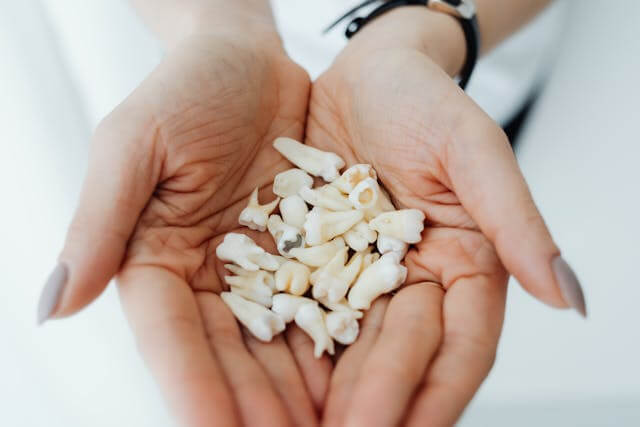Dental cavity, tooth decay, or dental caries is a common oral health disease globally and can have serious consequences if neglected.
According to the World Health Organization (WHO) Global Oral Health Status Report in 2022, oral diseases affect about 3.5 billion people worldwide with 3 out of 4 people affected living in middle-income countries. About 2 billion people suffer from caries of permanent teeth while 514 million children suffer from caries of the primary teeth worldwide.
The high numbers of people affected by dental cavities globally makes it a disease of interest.
What is Dental Cavity?
Dental Cavity is an oral disease that occurs when bacteria in plaque act on the free sugars contained in the various foods, drinks and fruits we take and convert them to acid, which overtime destroys the enamel of the tooth and causes cavitation.
What Causes Dental Cavity?
Dental plaque is very important in the formation of dental caries. Dental plaque contains bacteria such as Streptococcus mutans that have been implicated in the initiation and formation of dental caries.
If dental cavity is ignored by not visiting a dentist, the consequences are usually detrimental and expensive to manage.
Risk Factors for Dental Cavity
Some of the risk factors for dental Cavity to occur include the following:
1. Sugary Foods and Drinks
Many of the things we eat and drink contain refined sugar. There are certain bacteria in the oral cavity that have affinity for refined sugar. They produce acidic substances by breaking down the sugar in our diet. The acids help to destroy the teeth and cause decay.
Any food product or drink that contains refined sugar is known as a cariogenic diet.
If we can reduce the amount of cariogenic diet we consume daily, then, we shall have greatly reduced the chances of developing a dental cavity or suffering the consequences of having one.
Some examples of cariogenic diets are chocolate bars, sweetened biscuits, bread, carbonated drinks, candies, chewing gums, beverages, etc.
2. Poor Oral Hygiene
When we don’t brush properly or fail to brush at all, we encourage the build up of dental plaque on the teeth, which can lead to serious consequences like cavity formation, bad breath and gum diseases.
Dental plaque houses dangerous bacteria that impact our oral health negatively. This is why it is essential we brush twice regularly and visit the dentist every 6 monthly for dental check ups and professional teeth cleaning. Doing this will help us maintain good oral hygiene.
3. Bacteria
The oral cavity is lined with certain microorganisms that are normal commensals in the oral environment. However, among these organisms are certain bacteria that are important for caries to occur. These bacteria thrive in the oral biofilm called dental plaque.
If these microorganisms are controlled through good oral hygiene practice, dental cavities will not form.
4. Susceptible Tooth
The posterior teeth, that is, the premolars and molars are more at risk of developing cavities. The reason is that they have pits and fissures that retain cariogenic diets for a long time thereby allowing bacteria enough time to act on the food remnants to produce acid that is destructive to the tooth substance.
Teeth with deep pits and fissures, hypoplastic teeth, etc. are more at risk of developing caries than other teeth.
5. Insufficient or Lack of Fluoride
Fluoride is important for strengthening the teeth against caries. Brushing with toothpastes that do not contain fluoride can have dire consequences as the teeth may be predisposed to developing dental cavities. It is important you ensure that your toothpastes contain the right amount of fluoride.
6. Dry Mouth
Dry mouth or xerostomia is a situation where there is not enough saliva in the mouth. There are a number of causes such as dehydration, mouth breathing, anxiety, smoking, drugs (e.g antidepressants, anticholinergic, chemotherapy drugs, etc), radiation therapy of the head and neck region, salivary gland diseases (e.g. sialolthiasis, sialadenitis, etc), health conditions like diabetes, sjogren’s syndrome, etc
Saliva is important in the mouth for several reasons. Apart from playing a role in speech, eating, and dissolving food substances so we can appreciate the taste, it also helps in cleansing the mouth by preventing food debris from adhering on the teeth. It also provides some antibacterial effects.
If saliva is absent or insufficient in the mouth, it encourages accumulation of food remnants in the mouth as well as the buildup of bacteria, which development of dental cavity or cavities is one among many consequences that could arise.
Impact of Dental Cavity on Our Dental And General Health
Does having an untreated dental cavity or cavities pose some risks to our dental health and general health? The answer is a resounding yes! Many people do not know this. That is why the rate of late presentation to the dental clinic is still very high, especially in Africa.
Here are some of the consequences of having an untreated dental cavity.
Halitosis
Food particles and bacteria can lodge into dental cavities and produce foul smell which makes our breath unpleasant. Bad breath is a serious dental complaint and can have serious negative effects on sufferers.
Sensitivity
Tooth decay confined to the enamel is usually asymptomatic. However, as the decay progresses to involve the dentin, you may begin to experience sensitivity (that is shocking sensation to cold foods and drinks, and certain fruits). There are other causes of dentin sensitivity, however, dental cavity is one of the major causes.
Pain
Majority of the people that visit the dental clinic, especially in Africa, do so because they are experiencing pain. Dental caries is the common cause of pain within the oral cavity. Pain usually occurs when tooth decay progresses from the enamel into the pulp chamber.
Toothache can be very distressing, disturbing both sleep and daily activities.
Difficulty in Mastication
Once pain ensues, most of the times, chewing becomes a problem, especially on the affected side. The individual will not be able to chew because doing that aggravates the pain. This makes the individual loathe food. Malnutrition may set in if you are not eating well, making it easy for the infection to spread even faster.
Cellulitis/Abscess
Tooth decay or caries is an infectious process. As the infection progresses, it can have serious consequences on the dental health resulting in odontogenic cellulitis of the surrounding tissues, which is visible as a diffuse facial swelling that is causing severe pain.
Trismus
This refers to painful spasms of the jaw muscles resulting in inadequate mouth opening. Trismus can occur with jaw swelling due to odontogenic cellulitis. Inadequate mouth opening makes feeding difficult and this further compromises the individual’s health. Cellulitis spreads faster if there is malnutrition and reduced immunity.
Space Infection
This is the spread of odontogenic infection into potential spaces of the head and neck regions. Although these spaces do not exist in actual reality, the spread of infections through thin membranes (fasciae) lining vital structures and muscles of the head and neck region create them, hence the name fascial space infection. Fascial space infection is potentially life threatening and is therefore considered a dental emergency.
Ludwig’s Angina
This is a major complication of having an untreated dental cavity with life threatening consequences. Although it is not so common, it is equally life threatening.
It is a rapidly progressive cellulitis involving the soft tissues of the floor of the mouth causing serious swelling in the submandibular (beneath the lower jaw), sublingual (beneath the tongue) and submental (beneath the chin) regions.
Ludwig’s angina can cause airway obstruction resulting in mortality if immediate treatment is not given.
Conclusion
Dental cavity can have very serious consequences on our health and therefore, should never be ignored. If you notice any cavitation on your tooth, do not hesitate to see your dentist. When you fail to get your dental cavity restored, it might become progressive and cause other health complications you never imagined possible. Now that you know better, take charge of your dental health and get every cavity on your teeth treated.









